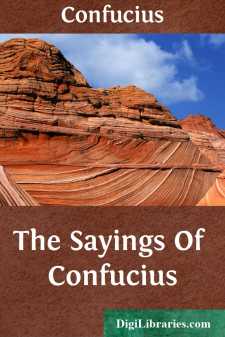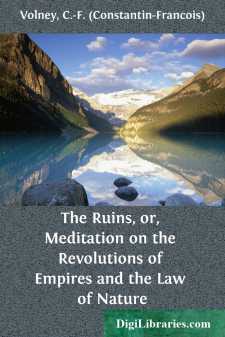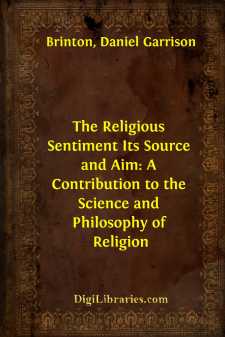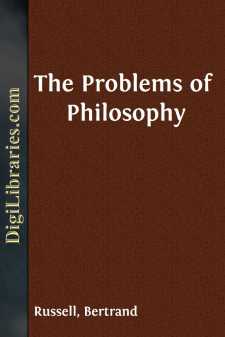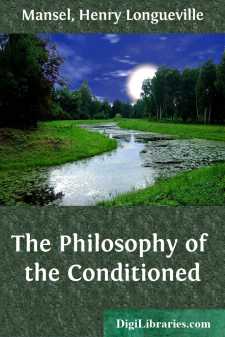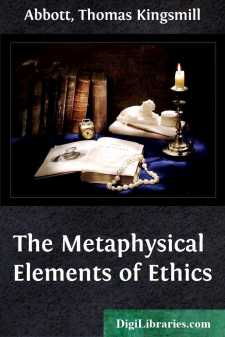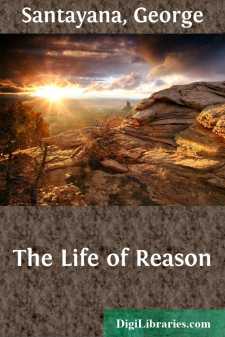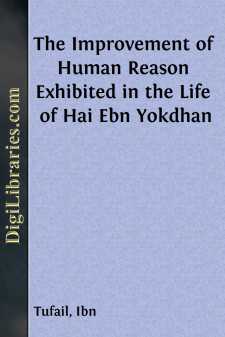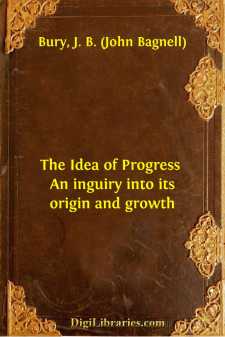Philosophy
- Aesthetics 11
- Eastern 1
- Ethics & Moral Philosophy 2
- General 30
- Hindu 2
- History & Surveys 3
- Logic 1
- Metaphysics 3
- Political 1
- Religious 7
- Social 3
- Taoist 1
Philosophy Books
Sort by:
by:
Confucius
INTRODUCTION Confucius was born in the year 550 b.c., in the land of Lu, in a small village, situated in the western part of the modern province of Shantung. His name was K'ung Ch'iu, and his style (corresponding to our Christian name) was Chung-ni. His countrymen speak of him as K'ung Fu-tzu, the Master, or philosopher K'ung. This expression was altered into Confucius by the Jesuit...
more...
PARIS TRANSLATION, First published in this Country by Dixon and Sickels.INVOCATION.Hail, solitary ruins! holy sepulchres, and silent walls! you I invoke; to you I address my prayer. While your aspect averts, with secret terror, the vulgar regard, it excites in my heart the charm of delicious sentiments—sublime contemplations. What useful lessons! what affecting and profound reflections you suggest to...
more...
CHAPTER I. THE BEARING OF THE LAWS OF MIND ON RELIGION. The Science of Religion is one of the branches of general historical science. It embraces, as the domain of its investigation, all recorded facts relating to the displays of the Religious Sentiment. Its limits are defined by those facts, and the legitimate inferences from them. Its aim is to ascertain the constitutive laws of the origin and spread...
more...
PREFACE This book contains two closely related studies of the consciousness of nations. It has been written during the closing months of the war and in the days that have followed, and is completed while the Peace Conference is still in session, holding in the balance, as many believe, the fate of many hopes, and perhaps the whole future of the world. We see focussed there in Paris all the motives that...
more...
by:
Bertrand Russell
CHAPTER I. APPEARANCE AND REALITY Is there any knowledge in the world which is so certain that no reasonable man could doubt it? This question, which at first sight might not seem difficult, is really one of the most difficult that can be asked. When we have realized the obstacles in the way of a straightforward and confident answer, we shall be well launched on the study of philosophy—for philosophy...
more...
THE PHILOSOPHY OF THE CONDITIONED. The reader of Plato’s Republic will readily recall to mind that wonderful passage at the end of the sixth book, in which the philosopher, under the image of geometrical lines, exhibits the various relations of the intelligible to the sensible world; especially his lofty aspirations with regard to “that second segment of the intelligible world, which reason of...
more...
If there exists on any subject a philosophy (that is, a system of rational knowledge based on concepts), then there must also be for this philosophy a system of pure rational concepts, independent of any condition of intuition, in other words, a metaphysic. It may be asked whether metaphysical elements are required also for every practical philosophy, which is the doctrine of duties, and therefore also...
more...
by:
George Santayana
Whether Chaos or Order lay at the beginning of things is a question once much debated in the schools but afterward long in abeyance, not so much because it had been solved as because one party had been silenced by social pressure. The question is bound to recur in an age when observation and dialectic again freely confront each other. Naturalists look back to chaos since they observe everything growing...
more...
by:
Ibn Tufail
THE PREFACE. When Mr. Pococke first publish'd this Arabick Author with his accurate Latin Version, Anno 1671. Dr. Pococke his Father, that late eminent Professor of the Oriental Languages in the University of Oxford, prefix'd a Preface to it; in which he tells us, that he has good Reason to think, that this Author was contemporary with Averroes, who died very ancient in the Year of the Hegira...
more...
We may believe in the doctrine of Progress or we may not, but in either case it is a matter of interest to examine the origins and trace the history of what is now, even should it ultimately prove to be no more than an idolum saeculi, the animating and controlling idea of western civilisation. For the earthly Progress of humanity is the general test to which social aims and theories are submitted as a...
more...


